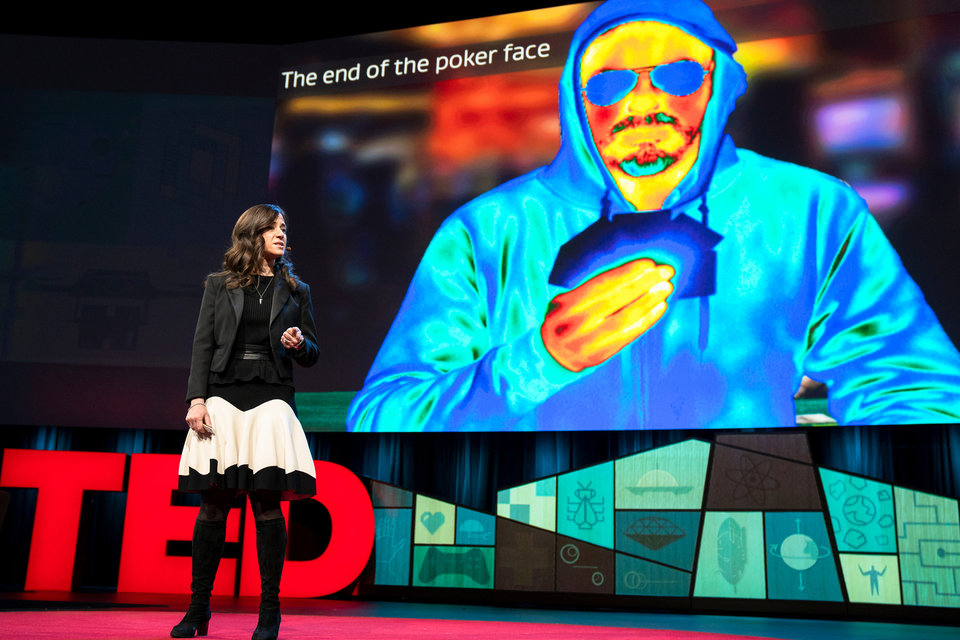
Forget Facebook your body emits data that could be used to read your emotions, check your health, and track aggression
- Disregard Facebook’s information sharing. New advancements could soon make it feasible for organizations and establishments to inactively track your feelings and wellbeing.
- Poppy Crum, the central researcher at Dolby Labs, examined these advances amid a discussion at the yearly TED Conference in Vancouver, Canada.
- “Envision a secondary school advocate understanding that apparently sprightly understudy is having a hard time…or the specialists knowing the distinction between an emotional well-being emergency and another sort of animosity,” she said.
Regardless of whether you quit Facebook and every one of it’s information sharing inclinations, abstain from utilizing a cell phone, and for the most part remain off the web, despite everything you’re transmitting information each second of consistently. As Poppy Crum, the main researcher at Dolby Labs, exhibited amid a discussion at the yearly TED Conference in Vancouver, Canada, new advancements could soon make it feasible for organizations and foundations to track your feelings and wellbeing utilizing this information.
While in front of an audience, Crum demonstrated the group of onlookers a terrifying video. She at that point presented an information representation demonstrating the carbon dioxide breathed out by individuals in the theater while the video played.
Crum had, it turned out, been following the gathering of people’s carbon dioxide discharges.
“You can see where a few of us bounced as a dark red cloud. It’s our aggregate tension making a spike in CO2,”
she said.
This is the sort of uninvolved information gathering innovation, as per Crum, that would one be able to day be utilized to uncover our internal lives to educators, specialists, and obviously, enterprises.
“Envision a secondary school instructor understanding that ostensibly chipper understudy is having a hard time…or the specialists knowing the distinction between an emotional wellness emergency and another sort of animosity,”
she said.
Crum, a neurophysiologist via preparing, does related research in her normal everyday employment. At Dolby, she contemplates how individuals watch motion pictures utilizing EEG tops, beat oximeters, trackers that measure heart rate and sweat reaction, and warm imaging cameras. The thought, as per The Verge, is to answer an assortment of inquiries that could be utilized to change the ways movies and TV demonstrates are made, including what sorts of scenes make individuals sweat, nod off, or get apprehensive.
Crum trusts this sort of innovation could in the long run be inescapable in our regular day to day existences. And keeping in mind that some may consider it to be an intrusion of protection, she supposes it will be utilized for good on the off chance that we let it.
At the point when TED initially moved toward her about completing a discussion, Crum said she needed to center around something that isn’t discussed enough: how it’s presently conceivable to typify our inner states, making apparently subjective questions (like feeling) quantifiable.
“The present speak was about sensors on the planet that can lift things up without our office. There are such a large number of chances at the present time for tech to know these things about us, and it’s not generally awful,”
she revealed to journalists after she got offstage.

Practically speaking, she says, this could mean permitting social insurance suppliers access to discourse information that could distinguish infections (discourse changes can be an indication of Alzheimer’s, for instance) or giving educators a chance to approach data about how understudies are responding to specific lessons.
Crum additionally raised a case from her work life.
“I never take telephone gatherings that don’t include video. In a very male work environment, it’s simple for females to be translated as forceful and not emphatic on the telephone.”
It could be valuable, she proposed, for uninvolved information following innovation to get feelings amid these sorts of gatherings so nothing is misinterpreted.
“It isn’t so much that we [need to be] sharing everything, except how would you ensure individuals have comprehended you, that they’ve possessed the capacity to take away the message you’re attempting to share?”
she said.
The protection suggestions for this sort of information following are huge. Crum is a supporter for control and advancing beyond information following innovations previously they wind up inescapable.
“Your gadgets will find out about you than you will,”
she said.
“I trust we have to consider how [the technology] could be utilized.”
Original article by Ariel Schwartz